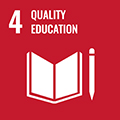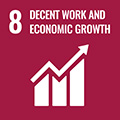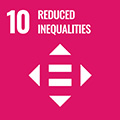Cross-disciplinary skills complement specific disciplines in order to enrich the wealth of skills possessed by students, facilitating their entry into the world of work and their personal growth as active and responsible citizens. These skills apply to various contexts, such as cognitive, practical, managerial (identification and solution of problems, propensity to innovate, creativity, education for global citizenship etc.), as well as relational and communicative (dialogue, listening, teamwork etc.). The purpose of the project is to activate course units/laboratories in these contexts and make them available to all students among the optional activities included in their learning paths, or even on an extra path basis. The offer will also include such contexts as entrepreneurship, inter-cultural dialogue, and cooperation for development. The overall offer, in some cases, will also be supported by additional learning tools, such as, for example, a MOOCs platform that supplements lectures and seminars.
The offering will be integrated by "Minors": degree programmes that students can choose to supplement their main degree programme, which will be recognised with an additional title.
The first of these programmes, promoted by the Department of Biological, Geological, and Environmental Sciences with the support of other eight University Departments, is dedicated to climate change, allowing students to acquire knowledge on the status of scientific research and the main social and political implications of global warming caused by humankind. "Journey through space and time" is the title of the second programme, promoted by the Department of Mathematics, together with the departments of the Arts, Physics and Astronomy, and Philosophy and Communication Studies. The programme will offer an interdisciplinary approach to art, architecture, astronomy, philosophy, physics, and mathematics.
The evolved education project "history as a common asset" adopts a new and transversal approach, using History as a tool to understand the present through a critical comparison with the past. An additional competence that enriches the technical and scientific degree programmes, offering useful methods to develop aware citizenship and articulated critical knowledge.
References to the strategic plan
- O.3.1 - Improve the skills acquired during the degree programmes in order to facilitate the entry of graduates into the world of work
- O.3.4 - Promote synergies between degree programmes and the strategic interdisciplinary areas of research also in relation to the needs of society
- O.5.2 - Support the education of disadvantaged students, consolidating coordinated action with local institutions and communities on the right to higher education
- O.5.3 - Improve the career guidance for incoming, resident and outgoing students, taking into consideration the specific needs of the students


